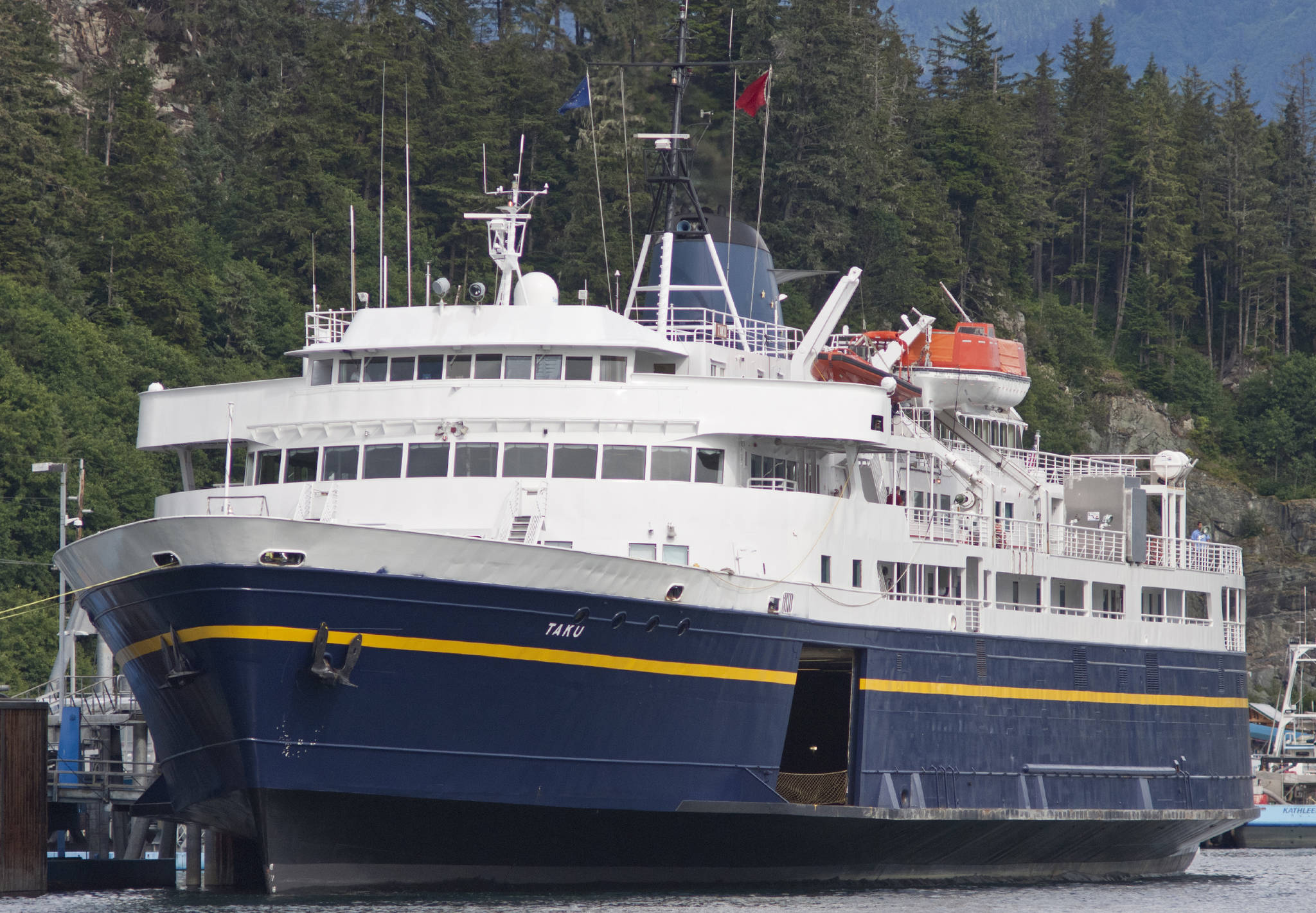The difference between dreams and reality is about $1.5 million.
On Friday, the Alaska Marine Highway listed the 54-year-old ferry Taku for sale, minimum bid $1.5 million. For a ferry system dreaming of one day breaking even, the sale means new revenue. The Taku, expensive to operate and maintain, will be replaced by one of two new Alaska-class ferries under construction in Ketchikan.
For the buyer, the Taku could be a dreamed-of link between remote islands in the South Pacific, a floating lodge, or a quick profit at the scrapyard.
On both sides, the dreams aren’t likely to come true.
“There’s a lot of dreamers, and they feel like, hey, we can pick it up cheap,” said Seattle boat broker Brian Peterson of Marcon International Inc.
In reality, the scrapyard is usually the destination.
[Cities and boroughs get first dibs on ferry Taku before it heads to auction]
Boat broker Harry Mose knows that through first-hand experience. A few years ago, he sold the Canadian ferry Pacific Aurora. It had been in service along Canada’s east coast, then brought to British Columbia and repurposed. Its owners wanted $2.5 million for the ship.
“I told them they were out to lunch,” Mose recalled.
Despite the price, there was no shortage of interest.
“On that Pacific Aurora, it took four or five years to actually sell it, but I had almost 5,000 inquiries, most of them by email, thankfully,” he said. “They were all just that, people dreaming.”
Mose ultimately sold the Pacific Aurora for $150,000, and that was for a ship newer and smaller than the Taku. No one wanted to buy a ship that needed significant repairs and costly certifications to operate again. The Taku needs both, according to a condition report dated Aug. 11.
“I wish them luck on their million and a half,” he said of Alaska’s asking price.
A Seattle boat broker familiar with Alaska and granted anonymity to speak candidly, said unless the precisely right buyer is looking at the exact right time, the state’s minimum bid is a dream.
“I think it’ll get a look, but if I had to guess, they’ll never see that million-five,” the broker said. “If it goes into a foreign, South American or wherever market, they’re not going to want to pay much. They’re not going to be able to pay much.”
Even if the buyer was willing to pay the state’s minimum bid, federal rules will send 63 percent of sale proceeds to federally funded transportation programs in Alaska. The remaining 37 percent will go to the state’s general fund.
A familiar refrain
The last time the state sold a ferry, which was 2003, someone bought it on eBay. Lloyd Cannon, then the CEO of All Alaskan Seafoods, bought the E.L. Bartlett for $389,500 from the online auction site using the username “Salmon Man 1953”.
Cannon, who died in 2010, told the Empire at the time that he wasn’t quite sure what he was going to do with his new 1,500-ton ship.
“We already have about five people with ideas. We just got to figure out if they have any money,” he said.
Cannon considered turning the Bartlett into a fishing boat, then listed it for sale himself, but after there were no takers, he donated it to the Seattle Maritime Academy.
It’s still there, and Craig Bailey, the academy’s former port captain, still teaches students aboard the Bartlett, which hasn’t moved from its berth since arriving at the academy.
“Simulation is fantastic, but for physical work things, you need to actually do the task,” he said.
The Bartlett’s car deck is lined with workbenches that have turned it into a classroom space, and classes of 30 students at a time are led by instructors.
Even as a classroom, stationary and tied up, the Bartlett is expensive.
“We’ll eventually sell it,” said Sarah Scherer, director of the academy. “It’s just too big for us to maintain, and we can’t get under way. It’s a liability at this point.”
In another year or two, Scherer said, the Bartlett will be sold again. Bailey said someone in Hawaii had asked about using it as a ferry there.
Uncertain future
In Alaska, the dreamers have come calling for the Taku since it was laid up in 2015.
“We had, I think, upwards of 10-12 people express interest in the last two-year period,” said Capt. Mike Neussl, deputy commissioner of the Alaska Department of Transportation and the man in charge of the Marine Highway.
The state is requiring bidders to put $5,000 down as earnest money, and as of Monday, Neussl said no one had done so.
“The goal is to sell the vessel, get a fair price for it, and hopefully there is some competition and interest for that,” he said. “Obviously, if we don’t get anybody … that meets all the qualifications and requirements, then we’ll regroup or do something else.”
Bids are due by 3 p.m. May 9.
• Contact reporter James Brooks at james.k.brooks@juneauempire.com or call 419-7732.

